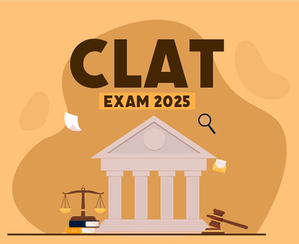New Delhi: The Delhi High Court has ordered the Consortium of National Law Universities to revise the results of the CLAT (Common Law Admission Test)-2025 examination.
“The errors in Question Nos 14 and 100 are demonstrably clear and shutting a blind eye to the same would be injustice to the petitioner albeit this court is conscious of the fact that it may impact the result of other candidates,” a bench of Justice Jyoti Singh said as it ordered the revision of merit list.
The bench also ordered that since option ‘C’ of Question 14 has been held to be the correct answer, the benefit will extend to all other candidates who have opted for option ‘C’, adding that Question No.100 will be excluded as advised by the expert committee.
Question No. 100 deserves to be excluded in light of the fact that the question setter has not even provided the correct answer as one of the options, the high court said.
The petitioner, Aditya Singh, a minor, challenged the answer key declared for CLAT-2025 for admission to five-year law courses conducted by the National Law Universities (NLUs) in the academic session 2025-26.
With a score of 87 marks, the petitioner contended that he would get admission in one of the NLUs with his present ranking, but he aspired to better his rank so as to get admission in the top 3 NLUs of the country.
The petitioner added that he is likely to achieve a higher score of 93.25, which will improve his existing rank if the alleged errors are rectified.
On the other hand, the Consortium of NLUs urged the court to not interfere in the examination process, as a robust internal check mechanism was in place and the final result had been published with all due care and deliberation and on the recommendation of two Expert Committees comprising of experts and luminaries in the field.
In its judgment, the Delhi HC said that there is no absolute proscription against a court examining a challenge to the answer key in an examination process, even if there is an expert opinion before the court.
“Most certainly, courts must exercise restraint in interfering in academic matters, including those pertaining to examination. (T)he law does not commend a total ‘hands-off’ approach and in exceptional cases where questions are found to be demonstrably wrong, the resultant injustice to a candidate must be redressed and undone,” it added.
In relation to a question, the high court opined that while attempting a comprehension passage in a language test, a candidate is not required to examine the terms or expressions used in the sentences on the touchstone of legal reasoning, applying statutory provisions or articles of Constitution of India or judicial precedents.
Partly allowing the petitioner’s plea, it ordered the Consortium of National Law Universities to award marks to him for Question No.14 in accordance with the scheme of marking and upheld the decision to exclude Question No. 100.
–IANS


Comments are closed, but trackbacks and pingbacks are open.